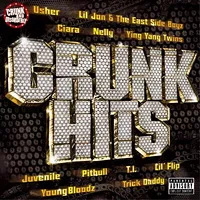The Jewish blogosphere is abuzz with the new Cool Jews movement, with the debate extending to "Jews who rock" (Courtney Love, Slash and Lenny Kravitz are perennially contested). Singer/songwriter Lewis Taylor, who's made the album of the year and is likely the planet's best cosmic soul singer, displays none of the overt hallmarks of the currently cresting wave of cultural Judaism, but he shares a love of the African-American aesthetic with fellow British Jew Nik Cohn, author of the recent memoir Triksta: Life and Death and New Orleans Rap (Knopf). Taylor's Stoned (Hacktone; Rating: *** 1/2) is awash with assured R&B rhythms, gospelized harmonies, exotic melodies and sublime future soul beats rivaled only by his British peers Omar and Seal. With its almost menacing tension between heartbreak and pleasure, "Lovelight" best nails Taylor's style and themes of persistent romantic angst. His US debut heralds deserved wide exposure for a late-modern master whose complex psych-rock-soul style has long confounded the marketplace and media.
Matisyahu, flagship artist of Brooklyn-based JDub Records, echoes the outsider borrowings of Cohn and Taylor. The success of the twentysomething Crown Heights Chasid (born Matthew Miller in West Chester, PA) rides on his adolescent experience following Phish, as well as the intersection of reggae and the Rebbe. Matisyahu's current album, Live at Stubbs (Epic/Or Music; Rating: ***), is riding high on the alternative radar. This "orthodox skanker" taps into both Rastafarian and Metrodox sentiment by splicing traditional klezmer music and Jamaican dub -- as well as his self-professed influences Bob Marley, Jewish folksinger Shlomo Carlebach and the Torah -- with audiences attesting to Matisyahu's riveting performances. On Stubbs, he coyly introduces "a song he learned in Crown Heights," then launches into show-stopper "Beat Box" to audible audience cries. The guttural beats make me think of gunfire and the troubled history of Jewish-black violence in the aforementioned Brooklyn neighborhood. This makes it even more intriguing that Matisyahu's music -- especially the guitar -- sounds stylistically closer to the electric-folk of Richie Havens, the child gospel-turned-folk singer bred in Brooklyn's Bed-Stuy, than Marley (compare "Refuge" with the trancey folk jams of Electric Havens and Alarm Clock).
And then there's a rather controversial icon of Jewish hip-hop who has come up in the wake of the Beasties, producer Rick Rubin and slacker auteur-turned-Scientologist Beck. 50 Shekel, a parodist indebted to mid-20th century opposites Mickey Katz and Allan Sherman, was once billed as "The World's Most Kosher MC." Raised an observant Jew in Brooklyn and Israel, the 30-year-old rapper (né Aviad Cohen) delighted the Jewish hip-hop scene with his 50 Cent-inspired "In da Shul," in 2003. But Shekel's "music" is beside the point, as now he's astounded fans with a Web site announcement that he's accepted Jesus as the Messiah.
The MC once told Beliefnet he was growing closer to the Torah and orthodoxy. His defection to the Messianic Jews, who believe (like Christians) that Y'Shua (Jesus) was the expected Messiah, is seen as a betrayal. 50 Shekel now works the Christian electronica/trance shtick, dropping the Columbine tune "Godz Kidz" (which he overtly likens to Lou Reed) and resurrecting such songs as Bette Midler's "Wind Beneath My Wings" (techno) and Blondie's "Call Me" (remade as God paean "Call Him").
Shekel (at least indirectly) benefits from the sensibility and pop space carved out by Shel Silverstein (1930-1999), as that Chicago multimedia artist updated the Jewish musical comedy of generations of vaudevillians with quirks specific to twang and '60s hip sensibility. A new compilation focusing on Silverstein's bawdy, uninhibited composer side, The Best of Shel Silverstein: His Words His Songs His Friends (Columbia/Legacy; Rating: **) is strictly for cultists, despite the presence of Bobby Bare, Johnny Cash, Willie Nelson and others. Dr. Hook's hit "Cover of the Rolling Stone" would probably resonate most with younger listeners, as its coy love-hate gaze at rock stardom still applies.
Lastly, there's treacly warbler Neil Diamond who, with his new 12 Songs (Columbia; Rating: **), trades on his rock-snob cred as a '60s Brill Building/Tin Pan Alley songwriter to enlist über-hip producer Rick Rubin on the renaissance trail. Rubin seems to be atoning for misdeeds by making peace with a hypothetical childhood wherein his mother spun Diamond's early LPs around the house. If the plain title and black-and-white studio shots ain't tip enough, the mission here seems to be transforming Diamond into a kinder, gentler Leonard Cohen who'll not perturb the middlebrow mainstream. It fails, though, since none of the songs catch fire; nowhere is the kernel of sonic truth that made The Band fans of Diamond or Bobby Womack cover "Sweet Caroline." Only a reprise of the giddy "Delirious Love" with Brian Wilson justifies this project.
Latest in Sit & Spin
More by Kandia Crazy Horse
-

Godfather of Go-Go Chuck Brown now winds it up on high
May 18, 2012 -
Kings of the South
May 30, 2007 -
Rock of ages
May 16, 2007 - More »
Calendar
-
 2025 KANGDANIEL TOUR ACT : NEW EPISODE in Charlotte @ CPCC Ross Gallery
2025 KANGDANIEL TOUR ACT : NEW EPISODE in Charlotte @ CPCC Ross Gallery -
 John R. Miller (18+) @ Neighborhood Theatre
John R. Miller (18+) @ Neighborhood Theatre -
 Chevelle with special guests Asking Alexandria and Dead Poet Society @ Charlotte Metro Credit Union Amphitheatre
Chevelle with special guests Asking Alexandria and Dead Poet Society @ Charlotte Metro Credit Union Amphitheatre -
 2025 VIVIZ WORLD TOUR [New Legacy] in Charlotte @ Halton Theater, CPCC
2025 VIVIZ WORLD TOUR [New Legacy] in Charlotte @ Halton Theater, CPCC -
 Blake Whiten (18+) @ Neighborhood Theatre
Blake Whiten (18+) @ Neighborhood Theatre
-
R&B group Shai looks back at 20 years 9
These smooth talkers distinguished themselves with vulnerable lyrics and swelling harmonies
-
Chvrches ups the energy 1
Band never fails to disappoint with simple but effective performing style.
-
Bill Murray, Jan Vogler and Friends entertain with wit, classic arts
Performance offers clever appreciation of music and literature.










